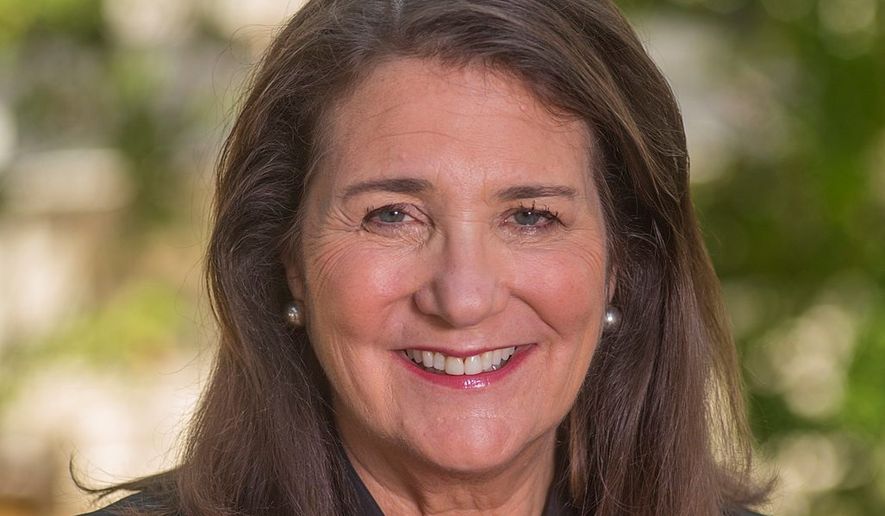OPINION:
A healthy future for our children and grandchildren depends on progress towards net-zero carbon emissions and a swift transition to clean energy. We need ambitious goals to achieve net zero, and I hope we can make this a reality by 2050. There must be a clear path forward to an all-of-the-above approach that leverages every aspect of our energy production in the United States while reducing the harmful impact of fossil fuels and carbon emissions. As the top Democrat on the Energy and Commerce Subcommittee on Energy, Climate, & Grid Security, I am laser-focused on finding bipartisan solutions to continue our transition to clean energy. Time is of the essence.
I was honored to attend COP28 last year in Dubai to meet climate leaders from around the world. There were more than 150 heads of state and tens of thousands of participants from businesses. Also in attendance were youth leaders, including a delegation of students from my home state of Colorado; non-governmental organizations; and Indigenous Peoples. All are as committed as I am to tackling the climate crisis. At COP28, nearly 200 nations came together and pledged to transition away from fossil fuels which would curb harmful emissions and build a more sustainable future for all of us. This is a significant achievement for the health of our planet and demonstrates there is a worldwide consensus about acting together to reduce emissions, invest in clean energy, and protect vulnerable communities.
At COP28, I was proud to discuss the work I have been doing on the Energy and Commerce Committee to advance these goals. My subcommittee drives energy policy, and I am working with Chairman Jeff Duncan, R-S.C., to find bipartisan approaches to our nation’s energy sector. We are updating and modernizing nuclear energy because we know we can leverage nuclear energy while protecting the health of our communities. Nuclear energy provides nearly 20% of our electricity in the U.S. and is the nation’s largest source of carbon-free energy—making up more than half of all of our emissions-free electricity. That’s why we authored the Atomic Energy Advancement Act, a landmark bill that would enhance our energy supply chain, improve safety, recruit a highly trained and skilled workforce, and ensure our nuclear regulations are up to date.
The United States must lead the world in transitioning to clean energy. In Congress, we need serious action to meet these ambitious climate goals. For that reason, I wrote the Clean Energy Innovation and Deployment Act (CEIDA), an all-encompassing bill that invests in clean energy technologies, establishes a Clean Energy Standard, incentivizes methane waste prevention, and lowers energy costs for low-income households. This bill provides meaningful solutions to energy production, including solar, wind, nuclear, and traditional energy sources. Zero-emission electricity credits would encourage power companies to deploy innovative technologies that reduce emissions. My bill also encourages traditional energy producers to operate in a way that protects our environment and reduces carbon emissions.
CEIDA is a straightforward and comprehensive way to achieve our goal of net-zero emissions by 2050, and I committed to moving this bill forward. However, it is just one prong of our approach. Congress has a responsibility to take on the climate crisis. We’ve made progress in recent years, but we know it is just the first step.
Most of this progress is because of the Inflation Reduction Act (IRA), the most expansive climate action in our history. Its provisions have helped create over 271,000 jobs, secured over $350 billion in clean energy projects, and made communities more resilient against the disastrous impacts of climate change. Signed into law in 2022, we are continuing to see the positive impacts the provisions of the IRA are having on our country. And while we are starting to move in the right direction, we have more to do.
Taking on energy production and transitioning to clean energy is going to take time, investment, and a commitment to renewable energy sources. That starts by delivering serious solutions that lower energy costs, protect our environment, and secure a healthy future for generations to come.
• Rep. Diana DeGette is a fourth-generation Coloradoan who has dedicated her life to serving the people of Colorado’s First Congressional District. As the top Democrat on the committee’s Energy, Climate and Grid Security Subcommittee, DeGette is responsible for helping shape the nation’s energy policies. She has led numerous efforts to hold the nation’s oil and gas producers accountable, reduce America’s overall emissions and expedite our transition to cleaner forms of renewable energy. In fact, one of the first bills President Biden signed into law after taking office was legislation DeGette authored to drastically reduce methane emissions from drilling sites across a move climate scientists praised as critical to combatting the climate crisis.




Please read our comment policy before commenting.